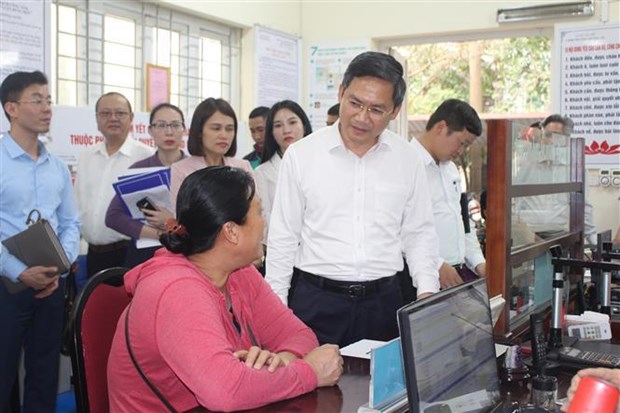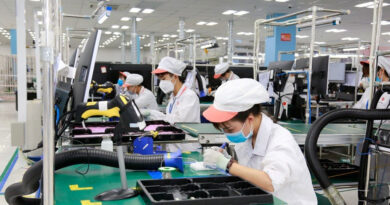Digitalisation expected to help Hanoi become civilised, modern
Digitalization is poised to propel Hanoi into a realm of sophistication and modernity. Significant strides in digitizing administrative processes and advancing digital transformation across various sectors, agencies, and units have set the stage for the capital city’s holistic evolution.
In locales like the Tay Ho Temple parking lot in Tay Ho district, vehicles adorned with sticker codes effortlessly navigate through automatic barriers, while transactions conducted exclusively through cashless means offer residents swift, convenient, and transparent services, in line with regulations set by the Hanoi People’s Committee.
For businesses, these initiatives translate into reduced fraud, labor costs, and cash management overheads, while for governmental bodies, they streamline tax management and fulfill digital transformation mandates.
Similarly, in administrative units like the one in Quang An ward, administrative tasks—from birth and residency registrations to health insurance—can now be swiftly processed within 20 minutes.

According to Vice Chairwoman Bui Thi Lan Phuong of the Tay Ho district People’s Committee, administrative reform and digitalization have revolutionized traditional workflows, simplifying procedures and enhancing transparency.
Hanoi’s commitment to facilitating online public services is exemplified by its resolution waiving fees for such services, a first in the country. Furthermore, the widespread adoption of digital signatures via the Information and Reporting System underscores the city’s dedication to modernization.
These initiatives, coupled with the interconnectivity of the city’s administrative settlement information system, form a robust foundation for the delivery of online public services, thereby fostering the growth of a digital government, economy, and society.
With unwavering determination from state agencies, organizations, businesses, and residents, Hanoi is poised to emerge as a modern, intelligent city integrated into the network of smart urban centers regionally and globally by 2030.

